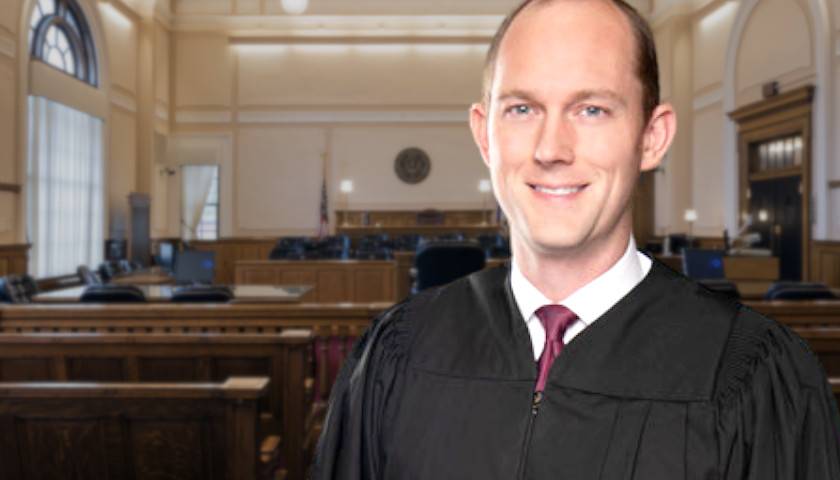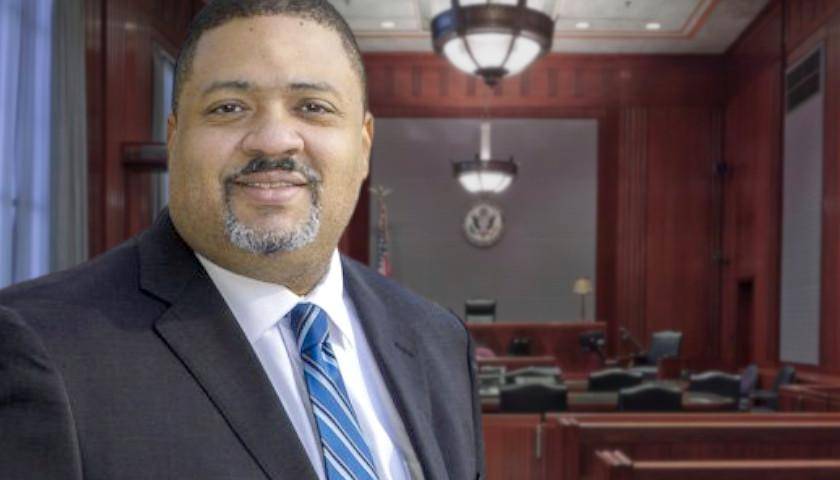Fulton County Superior Court Judge Scott McAfee signed a protective order on Thursday to seal sensitive evidence in District Attorney Fani Willis’ racketeering case against former President Donald Trump following the leak of proffer videos earlier this week. However, McAfee adopted the protective order submitted by former Georgia Republican Party Chairman David Shafer, one of the co-defendants in the case, instead of the more restrictive order submitted by Willis on Tuesday.
He explained that Willis first requested a protective order on September 27, but Shafer and nine other defendants informed the court they were negotiating the details of a joint protective order with prosecutors. The negotiations apparently reached an impasse by October 5, but remained ongoing as of October 16, according to McAfee’s order.
McAfee (pictured above) noted the situation demanded immediate attention following the leak of proffer videos for lawyers Jenna Ellis and Sidney Powell, who both entered into plea agreements with Willis’ office in October.
Willis submitted her emergency motion for a protective order immediately following publication of the leaked videos on November 14, it was quickly followed on November 15 with a filing from Shafer in opposition.
Following the leak, the impasse was apparently resolved, and McAfee wrote in his order that Shafer’s submission ultimately received the support of Willis and nine of the other defendants, including Trump, leading to McAfee’s acceptance. The order was opposed by former Trump administration official Jeff Clark, former Black Voices for Trump director Harrison Floyd, and former Coffee County elections director Misty Hampton.
The emergency motion submitted by Willis was far more restrictive than Shafer’s, and would have required defense attorneys to physically travel to her Fulton County office when reviewing evidence related to the case.
Unlike Willis’ request, the order adopted by McAfee will only consider evidence unearthed by prosecutors that is already publicly available to be sensitive evidence. Such sensitive materials must be clearly identified, the order mandates, and defendants will be given the opportunity to dispute the sensitive status of the materials in court.
McAfee clarified that the protective order will become void when the case concludes, and he previously indicated he expects a three month trial, with holidays off and three-day weekends to keep jurors from fleeing the extended time commitment.
Willis seemed to acknowledge this time estimate on Tuesday, when she told a crowd at The Washington Post‘s headquarters that she expected the trial will be live on Election Day in 2024, and could even continue past the presidential inauguration in 2025. She denied considering the political implications of the trial’s timing when bringing charges against Trump and the other defendants.
– – –
Tom Pappert is the lead reporter for The Tennessee Star, and also reports for The Georgia Star News, The Virginia Star, and The Arizona Sun Times. Follow Tom on X/Twitter. Email tips to [email protected].






